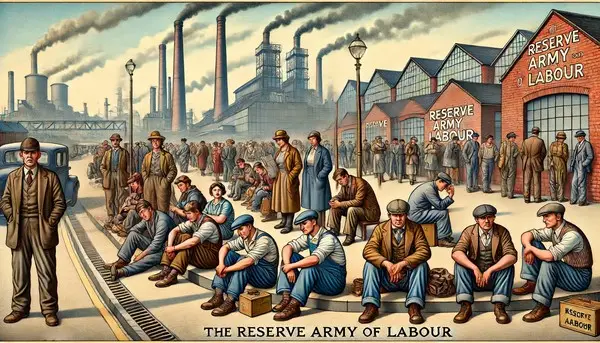Table of Contents
- Historical Origins of Labour Movements
- Key Events in Labour Movements
- Impacts of Labour Movements
- Challenges Facing Labour Movements
- The Future of Labour Movements
- Conclusion
Labour movements have been a significant force in shaping modern societies. From the industrial revolution to the present day, these movements have influenced economic policies, social structures, and the rights of workers. This article aims to provide an overview of labour movements, examining their origins, key events, and impacts on society. By understanding these movements, we gain insight into the struggles and achievements of the working class and the ongoing fight for fair labor practices.
Historical Origins of Labour Movements
Early Labour Struggles
Labour movements trace their origins back to the early days of industrialization. The shift from agrarian economies to industrial production in the 18th and 19th centuries created a new class of workers who faced harsh working conditions, long hours, and low wages. These conditions led to the formation of early labour unions and worker associations. The Luddites in England, who protested against mechanization in the early 19th century, are often cited as one of the first organized labor movements. Their destruction of machinery symbolized a desperate attempt to preserve their livelihoods against the rising tide of industrial capitalism.
The Rise of Trade Unions
As industrialization progressed, more formal trade unions began to emerge. In the United Kingdom, the combination laws of 1799 and 1800 initially suppressed these unions, but by the mid-19th century, organizations like the Grand National Consolidated Trades Union (GNCTU) were formed, advocating for workers’ rights and better working conditions. In the United States, the National Labor Union (NLU) was established in 1866, marking the beginning of a more organized labor movement that sought to improve the lives of workers through collective bargaining and political action.
Key Events in Labour Movements
The Haymarket Affair
One of the pivotal events in the history of labor movements is the Haymarket Affair of 1886 in Chicago. What began as a peaceful rally in support of an eight-hour workday turned violent after a bomb was thrown at police, leading to the deaths of several police officers and civilians. The subsequent trial and execution of eight anarchists, known as the Haymarket Martyrs, highlighted the intense conflict between labor and capital. This event not only galvanized labor movements in the United States but also internationally, leading to the establishment of May Day as International Workers’ Day.
The Pullman Strike
The Pullman Strike of 1894 was another significant event in American labor history. Workers at the Pullman Company in Chicago went on strike to protest wage cuts and high rents in company-owned housing. The strike escalated into a nationwide railroad boycott, leading to violent clashes between strikers and federal troops. The Pullman Strike underscored the power of organized labor and the willingness of the federal government to intervene on behalf of business interests. It also led to the establishment of Labor Day as a national holiday in the United States.
The Russian Revolution
The Russian Revolution of 1917 was a landmark event that demonstrated the potential of labor movements to transform society. Led by the Bolsheviks, the revolution overthrew the autocratic regime of Tsar Nicholas II and established a socialist state based on the principles of Marxism. The revolution had a profound impact on labor movements worldwide, inspiring workers to pursue more radical forms of political and social change. The establishment of the Soviet Union also provided a model for communist movements in other countries, further influencing global labor dynamics.
Impacts of Labour Movements
Improvements in Working Conditions
One of the most significant impacts of labor movements has been the improvement of working conditions. Through collective bargaining, strikes, and political action, labor unions have been able to secure better wages, shorter working hours, and safer working environments for their members. The establishment of labor laws, such as the Fair Labor Standards Act in the United States and the Factory Acts in the United Kingdom, can be directly attributed to the efforts of labor movements. These laws have set minimum standards for wages, working hours, and occupational safety, benefiting workers across various industries.
Social and Political Influence
Labor movements have also had a profound influence on social and political landscapes. By advocating for the rights of workers, these movements have helped to democratize societies and promote social justice. The labor movement’s role in the civil rights movement in the United States is a notable example. Unions like the United Auto Workers (UAW) supported civil rights leaders and campaigns, recognizing the intersectionality of labor and racial justice. Additionally, labor movements have often been at the forefront of advocating for broader social policies, such as universal healthcare, public education, and social security, which benefit society as a whole.
Economic Redistribution
The influence of labor movements extends to economic redistribution. By advocating for higher wages and better benefits, unions help to reduce income inequality and ensure a more equitable distribution of wealth. This redistribution is not only beneficial for workers but also for the economy as a whole. Higher wages increase consumer spending, which drives economic growth. Furthermore, strong labor movements can help to prevent the concentration of wealth in the hands of a few, promoting a more balanced and sustainable economic system.
Challenges Facing Labour Movements
Get the full article AD FREE. Join now for full access to all premium articles.
View Plans & Subscribe Already a member? Log in.





